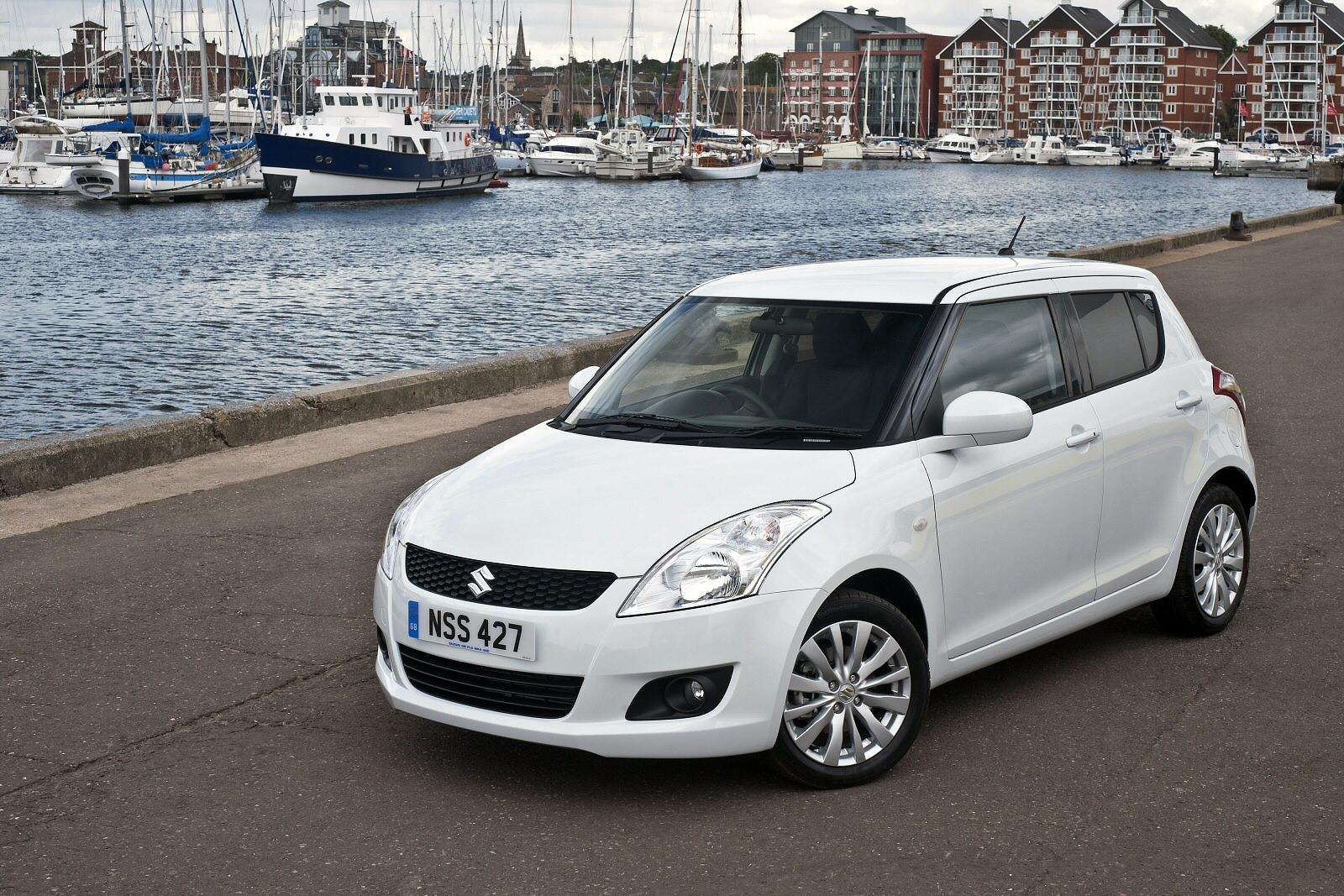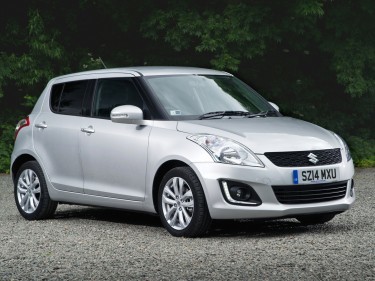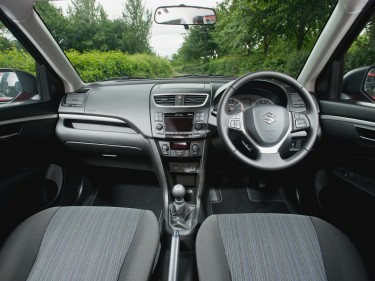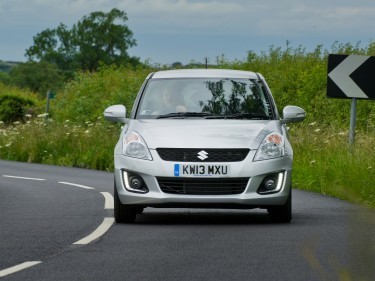Suzuki’s Swift supermini has been improved, but not beyond recognition.
Nearly all UK Swift customers choose 93bhp 1.2-litre petrol power in this car – so many, in fact, that the old 1.3-litre DDiS diesel unit has been discontinued.
Thanks to an advanced variable valve timing system that controls the intake and exhaust valves on each cylinder to optimise performance, the green pump 1.2 is reassuringly high-tech. Its useful output is a lot for a 1.2-litre engine, as is its 87lb/ft of torque. The 0-62mph trial takes 12.3s and the top speed is 103mph.
Customers of the Swift Sport hot hatch get a 1.6-litre petrol unit good for 62mph in 8.7s on the way to 121mph. As for the 4×4 version, well it’s based on an ordinary 1.2-litre petrol variant and features a proven and simple fully automatic and permanent 4-wheel drive system which transfers additional torque to the rear wheels when required via a viscous coupling. Great for those living in rural areas who don’t want to stretch to a small SUV.
If you haven’t checked out this Swift for some time but are familiar with the model, you might notice that the latest versions have been treated lately to a minor wash ‘n’ brush-up running to things like a re-designed front bumper and grille and silver detailing to the lower front bumper. For added safety and style, a neater LED-type high level brake lamp has been added.
Otherwise, in both three and five-door hatchback forms, this remains a neat piece of design, with nice features like the curving bonnet and the blacked-out pillars that create a “floating roof” effect. Take a seat in the rear and you’ll find one of the bigger cabins in the supermini class, but this car’s short tail means that bootspace isn’t quite as impressive and the stiffer body has necessitated a reduced-sized hatch opening through which the 204-litres on offer must be accessed. Fold the 60/40-split rear seats and this is extendable to 528-litres.
Behind the wheel, though some of the plastics used are a little hard to the touch, you certainly don’t get a bargain brand feel. Though the steering wheel is reach-adjustable only on plusher models, you do get seat height adjustment, so it’s pretty easy to find a comfortable driving position. Plus the deep windows and narrow pillars mean you’ve a very good view of the road ahead.
Affordability has always been a Swift strength and, like so much else, that hasn’t changed with the latest car. Price-wise, it’s positioned at the lower end of the supermini market and even looks attractive next to some city cars from a value for money point of view.
Prices start at just under £11,000 and all variants get seven airbags and ESP, as well as a front passenger airbag deactivation facility, electric front windows, remote central door locking with deadlocks, electrically adjustable and heated door mirrors, plus a MP3 / WMA compatible CD tuner with USB port and steering wheel mounted audio controls. All variants bar (rather curiously) the top Sport model get LED daytime running lights. And top-spec SZ4 models now get sat nav and a DAB radio.
The Swift 4×4 is available as a five-door 1.2 petrol model with manual transmission and equipped as either an SZ3 or SZ4 grade. Apart from 4×4 badging and a slightly increased body ride height of 25mm the SZ3 trimmed model appears identical to an equivalent SZ3 five-door. The SZ4 version has a more rugged appearance and offers extra protection over rough ground by adding front and rear skid plates, black wheel arch extensions and black side skirts.
While the Swift has always been cheap to buy and reliable, its fuel economy and CO2 emissions tended to let the overall cost of ownership down a little. That’s no longer the case, with the latest model achieving some standout returns at the pumps.
The 1.3-litre diesel engine is capable of 67.3mpg on the combined cycle while the 1.2-litre petrol engine comes up with 56.5mpg. Emissions for the two engines are 109g/km and 116g/km respectively. The Swift Sport’s 1.6-litre petrol engine returns 44.1mpg on the combined cycle and 147g/km of CO2. As for the 4×4 version, well it’s based on the petrol 1.2 and with the AWD mechanicals adding just 65kgs to the vehicle weight, the impact upon running costs is minimal, this variant still returning 126g/km of CO2. Insurance groups across the Swift line-up range between 8 and 19.
Does this Swift’s low key evolutionary approach in the supermini sector matter in a market full of higher-profile choices? Not really. You don’t need to spend long with this improved version to realise that it’s a more grown-up proposition than many of its rivals – and a very competitive alternative in its class. You come away from a drive in one thinking that Suzuki deserves a higher profile than it currently enjoys in the UK – but maybe that’s the way Swift owners like it.
This isn’t a supermini that most of those who’ll settle for a Fiesta or a Corsa will ever consider. But it’s an alternative they should have tried before signing on the dotted line. Here’s an affordable car that doesn’t feel like one. And a well-kept secret that doesn’t deserve to remain that way.
Facts and figures
Model: Suzuki Swift range
Price: From under £11,000
Engine: 93bhp 1.2-litre petrol
Performance: 0-62mph in 12.3 seconds, top speed of 103mph.
Economy: 56.5mpg
CO2 rating: 116g/km




